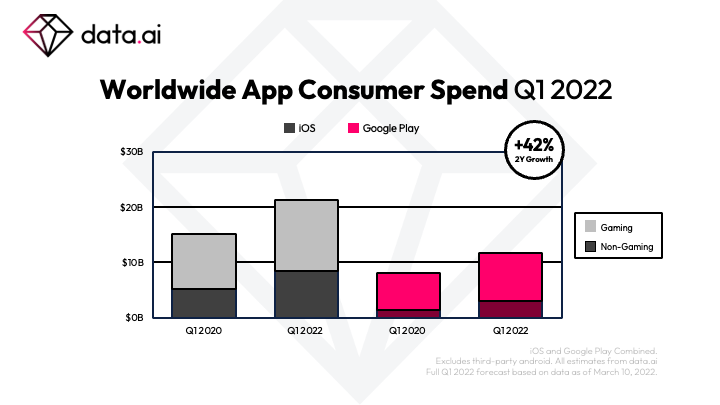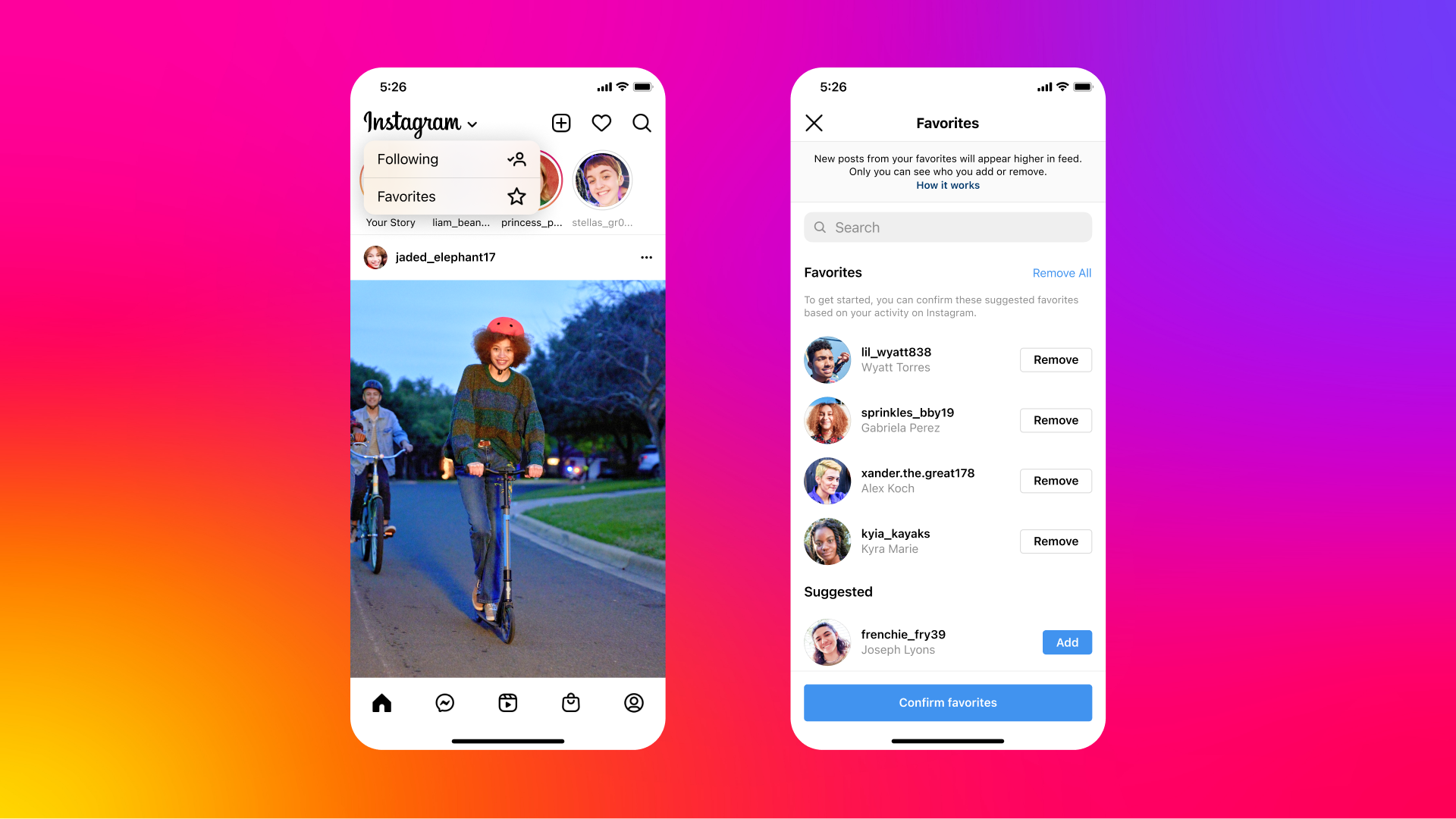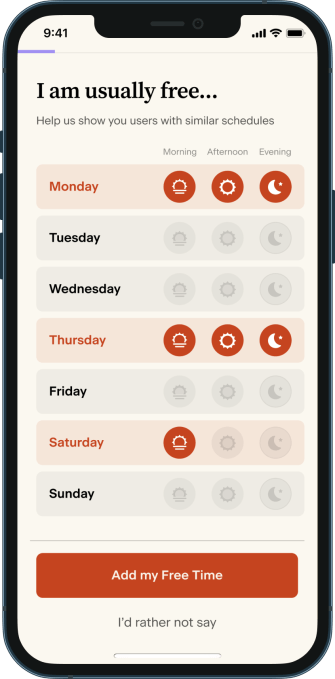Welcome back to This Week in Apps, the weekly TechCrunch series that recaps the latest in mobile OS news, mobile applications and the overall app economy.
The app industry continues to grow, with a record number of downloads and consumer spending across both the iOS and Google Play stores combined in 2021, according to the latest year-end reports. Global spending across iOS, Google Play and third-party Android app stores in China grew 19% in 2021 to reach $170 billion. Downloads of apps also grew by 5%, reaching 230 billion in 2021, and mobile ad spend grew 23% year over year to reach $295 billion.
Today’s consumers now spend more time in apps than ever before — even topping the time they spend watching TV, in some cases. The average American watches 3.1 hours of TV per day, for example, but in 2021, they spent 4.1 hours on their mobile device. And they’re not even the world’s heaviest mobile users. In markets like Brazil, Indonesia and South Korea, users surpassed five hours per day in mobile apps in 2021.
Apps aren’t just a way to pass idle hours, either. They can grow to become huge businesses. In 2021, 233 apps and games generated over $100 million in consumer spend, and 13 topped $1 billion in revenue. This was up 20% from 2020, when 193 apps and games topped $100 million in annual consumer spend, and just eight apps topped $1 billion.
This Week in Apps offers a way to keep up with this fast-moving industry in one place, with the latest from the world of apps, including news, updates, startup fundings, mergers and acquisitions, and suggestions about new apps to try, too.
Do you want This Week in Apps in your inbox every Saturday? Sign up here: techcrunch.com/newsletters
Top Story: Your Move, Apple
There is no bigger news in the world of apps this week than that of Google’s announcement that it would begin to pilot a third-party billing system in various markets. To be clear, this is only a pilot program for the time being. And Google so far has only announced one partner: app store agitator and noted critic, Spotify. But ultimately, Spotify says it aims to roll out this third-party billing option in all markets where it sells Spotify Premium, which is 184 worldwide markets.
There are several caveats to this news, however.
One, is that this isn’t a way for developers to avoid Google’s commission. Instead, Spotify and Google negotiated a deal that Spotify has deemed “fair” — but neither party will share the terms. For context, Google Play’s commissions today range from 15% to 30%. And when Google opened up to third-party billing in South Korea, it only dropped commissions by 4%, arguing that it was still providing a host of other platform services that it needs to charge for. Presumably, Spotify has managed to get itself a steeper cut. But the lack of transparency around these deals is unfair to the wider app developer community, which has a right to know where the boundaries are and how they’re being determined. For what it’s worth, Epic Games is not on board with this strategy.
Another thing to note is this new system isn’t yet finalized. It’s still to be determined how this will appear in the Spotify app’s user interface or how users will go about tracking, managing and canceling subscriptions billed outside the Play Store. Will they have to go to the website through an in-app browser? Can they toggle them on and off right inside the native app? Will Spotify be able to market lower-cost subscriptions to those currently paying through Google Play billing inside the app? We’ll have to wait and see.
And while Spotify was touting the worldwide rollout of third-party billing on its app after the tests complete, Google took issue with any dubbing of this system as “global” from the get-go. (No really, we got emails.) Google said it’s starting with “select markets” and those exact regions haven’t been determined at this point. While that may be, it’s definitely worth noting this is not a U.S.-only project, in either of the companies’ opinions.
News of the pilot, which signals Google will begin a process to reduce its commissions further, could also increase the pressure on Apple to do the same. With this launch, Apple can no longer point to the other major global mobile app store and argue that the two are basically in line with regard to their commission structure.
It’s a wonder Apple has let this battle go on for so long. The fight over commissions has painted Apple in a bad light, soured developer relations and hurt consumers who have to pay higher prices when developers up the cost of in-app purchases to cover Apple’s cut. Apple makes billions from its App Store, but it’s fighting this battle as if reducing commissions or allowing alternative payments would be the end of its business. (Can someone remind Apple it’s like, super rich?)
Besides, not all consumers would even opt for the alternative billing option, even if it were to be permitted, because it’s simply more convenient to use Apple Pay and manage subscriptions in one place inside the App Store.
Plus, why can’t Apple find other ways to increase revenues to help make up for lost commission across its App Store operation? Maybe by expanding its enterprise program? Or by offering different service tiers to developers — like those that provided developers with a more direct relationship or better support from the App Store Review team? Or perhaps by giving them options to pay for more frequent expedited reviews throughout the year? After all, these are problems developers already complain about — the randomness and arbitrary nature of App Store rejections and the sometimes prolonged app review process that results.
Apple is very secretive about its App Store revenue — it doesn’t break it out in earnings from other services. And Phil Schiller, who runs the App Store, pretended not to know if Apple’s app marketplace was profitable when questioned in the Epic antitrust trial. (“It doesn’t come up,” he said!) But court testimony indicated Apple’s App Store profit margin was 78% in 2019. And the multibillion-dollar operation had a record year in 2021, paying out $60 billion to developers after it took its commissions. There had been room for Apple to give a little — or even a lot — to build a better App Store and get ahead of the coming regulations without all this drama. Instead, it’s fought so hard against the tidal wave of changes, it may now have to introduce sideloading, alternative billing and third-party app stores if EU regulators get their way.
Weekly News
Platforms: Apple

Image Credits: Apple
- Apple announced Arizona would become the first state to offer driver’s licenses and state IDs inside Apple Wallet. With the launch, Apple device owners will be able to tap their iPhone or Apple Watch to present their ID, starting at select TSA security checkpoints in Phoenix Sky Harbor International Airport, with more TSA locations supported over time. It also said other states were coming on board, including Colorado, Hawaii, Mississippi and Ohio, and the territory of Puerto Rico, in addition to the previously announced Connecticut, Georgia, Iowa, Kentucky, Maryland, Oklahoma and Utah.
- Apple experienced back-to-back outages across its services this week, which impacted the App Store, Music, Podcasts and more, off and on, over the course of two days.
- Some users have been reporting issues with battery drains in iOS 15.4, reports claim.
- Apple still accounted for the majority of app ecosystem consumer spending in data.ai (App Annie)’s recent analysis. iOS apps continued to drive the majority of the app ecosystem’s growth on this front, accounting for 65% of the quarter’s total of $33 billion in consumer spending — a figure up 42% over the past two years.

Image Credits: data.ai
Platforms: Google/Android
- OnePlus co-founder Carl Pei teased the second product from his new company “Nothing” — a smartphone running Android with a Nothing OS skin, called the “Nothing Phone (1).” So far, Nothing has revealed the phone will feature a Snapdragon chip, a customized version of Android, with three years of OS updates, and four years of security updates. It will also work with the “Nothing Ear (1)”. headphones.
Augmented Reality
- 3D e-commerce technology company VNTANA is now an alpha tester for Meta’s AR Publishing API that will allow it to create and publish 3D assets for AR ads on Facebook and Instagram. Other companies testing the API include CGTracer, Modiface and Perfect.
- Cirque du Soleil, Snap and Verizon teamed up on a new augmented reality lens inspired by the O by Cirque du Soleil show. The Lens was built by Snap’s new Arcadia studio, and is only being offered to Verizon 5G customers as it’s meant to demonstrate the power of Verizon 5G Ultra Wideband, the operator says.
E-commerce
- Grocery shopping app Instacart introduced its latest strategy, which involves offering enterprise software for e-commerce, fulfillment, ads and insights directly to other grocery stores.
- Shopify introduced its own link-in-bio tool for use across the web and social media app profiles. Linkpop, as the tool is called, allows creators to sell products directly to their followers from their social profiles.
- FedEx is testing a feature that allows users to track their deliveries from other services in a separate tab. Shopify’s Shop app offers a similar feature.
- Instagram will allow all U.S. users, not just creators, to tag products they want to share from businesses set up in Instagram Shopping. Instagram says 1.6 million people tag at least one brand on average each week on the app. The feature will roll out in the coming months, but will focus on helping users point friends to businesses they support, rather than earning commissions.
Fintech
- Stock and crypto trading app Robinhood launched its new cash card this week, which allows users to spend money directly out of their Robinhood account and round up purchases to the nearest dollar to fund their investments, similar to something like Acorns, or more recently, Venmo.
Social

Image Credits: Instagram
- Instagram launched its chronological “Following” and “Favorites” feeds to all users. As earlier promised, Instagram brought back the chronological feed along with an option that lets you view updates from favorite accounts you choose. The features had been launched into limited testing starting in January but reached Instagram’s global user iOS and Android base by the end of the day on Wednesday, March 23 — a faster rollout than usual. Users are being alerted to the new options from a pop-up at the top-left of the app, under the word “Instagram.” From there, you can tap on which feed you want to view. The Following feed shows posts from all the accounts you follow in chronological order instead of ranked by algorithms. The Favorites feed is also chronological, but focuses on the up to 50 accounts you choose. But there is one big caveat to these new options: neither Following nor Favorites can be set as the default. Instagram says this is because it found users were “more satisfied” with algorithmic feeds by default (TikTok would probably agree!). But whether or not this should be a platform’s choice, not the users, remains up for debate.
- Meta sees recovery from Apple’s App Tracking Transparency (ATT) privacy changes. Meta had originally predicted a $10 billion decrease in revenue from Apple’s changes; The Information reported that SMBs are finding their ads are now suddenly performing better and customer acquisition costs declined.
- Looks like Twitter’s TweetDeck product could become the next Twitter Blue (subscription service) feature, based on discoveries made in the app’s code. The shift would make sense, given that Blue is aimed at power users and TweetDeck is certainly a tool for that market.
- Twitter added a new feature to its iOS app that allows people to use their camera to create GIFs. The GIF recording is just a few seconds long and is meant to be tweeted, not shared to other platforms.
- Reddit is considering a new way to add video to its site. The company is considering using videos in its subreddits (community forums) where users can “react” to others’ posts similar to TikTok’s Stitches.
Photos
- A Google Photos update added a handy import option that will allow it to pull in photos from Facebook, iCloud and others, right from its app. It also introduced other organizational changes to make it easier to find and sort through photos, albums, shared content and on-device screenshots.
Messaging
- A Moscow court labeled Meta Platforms an “extremist organization,” applying the decision to the already banned Facebook and Instagram, but not WhatsApp.
- WhatsApp is rolling out an updated look for its contact pages for businesses and groups. This is similar to the new look the app introduced for its contact pages, which introduced a cleaner look and a new “search” shortcut at the top of the screen.
- Google’s Messages and Dialer apps on Android were collecting data without an opt-out or explicit consent, possibly in violation of GDPR, according to a new research paper by computer scientists. Google said it was making changes but didn’t say if it believes this to be a GDPR violation.
Dating

Image Credits: Match Group
- Dating app giant Match Group, already home to Tinder, Match, OkCupid, Hinge and others, launched the latest addition to its dating services lineup with Stir, an app designed exclusively for single parents. The app is incubated in Match Group’s Match division, which runs Match.com and other niche dating apps. Its unique feature is a scheduling option called Stir Time that lets two busy single parents coordinate their plans.
Streaming & Entertainment
- Spotify will rebrand its live audio app Greenroom to Spotify Live and move its content to its main streaming app. Greenroom so far has failed to gain significant traction after Spotify’s acquisition of Betty Labs, the startup behind the app previously known as Locker Room, which became Greenroom. So it makes sense to shift that content to the app Spotify’s customers are already using.
- Short-form video app Lomotif, a TikTok alternative popular in India, partnered with media company Viacom18 to stream the science reality series, “The Inventor Challenge” on Lomotif’s platform.
- A “glitch” in TikTok’s registration process for its creator fund prevented sign-ups for weeks. After media reports, the company said a fix would roll out over the next few days.
- TikTok content moderators filed a class-action lawsuit over the psychological trauma they experienced working to remove graphic and disturbing content from the platform including murder, violence and child pornography. The moderators worked for tech firms Atrium in New York and Canadian firm Telus International. They said they were not provided with proper mental health care and had to meet aggressive quota targets.
- Apple’s TV app no longer allows users to rent or buy content if they’re accessing the app on Android TV or Google TV. The company was until recently exempt from Google’s in-app purchases, but now, instead of paying, Apple simply stopped selling on Google’s platforms.
- Apple announced new Podcast Connect creator features, including follower counts, uploading MP3 files as subscriber-only and custom subscription banners.
- Popular podcast app Overcast got its biggest redesign to date, introducing a new home screen, playlist screen, typography and spacing, as well as lots of user-requested features and under-the-hood improvements.
Gaming
- Video game studio Krafton (PUBG Mobile, New State Mobile) said it’s getting into blockchain and NFT games in partnership with Solana Labs.
- Nintendo shut down another mobile game, Dragalia Lost for iOS, which will close down in July 2022. The company last year closed down Dr. Mario World.
Travel & Transportation
- In a significant deal, Uber agreed to list all 14,000 NYC taxis on its app starting this spring. Fares for taxis will be the same as Uber X rides.
- A new social travel startup, Path, wants to be a TikTok for travel. The company launched its tool for discovering new destinations, hotels, restaurants and more, using video. Users can browse a map, watch videos, mark favorites and more.
Productivity & Utilities
- A lifesaving utility: A Ukrainian tech company’s app, Alarm, notifies users of incoming air raids before street sirens do. The app has been downloaded 4 million times.
- India’s DigiLocker, an app for digitizing and storing copies of documents, ID cards and more, has topped 100 million users, up from 38 million in 2020, and now stores nearly 5 billion documents.
- Apple Maps expanded its new maps experience, with detailed 3D buildings and enhanced navigation, to select Canadian cities, including Montreal, Toronto and Vancouver.
Health & Fitness
- YouTube expanded the use of its health source information panels outside the U.S. The cards, which surface credible and reliable health info alongside videos, will roll out this week to Brazil, India and Japan.
- Apple is being sued by AliveCor over claims that Apple has illegally monopolized the U.S. market for heart-rate monitoring apps for Apple Watch. AliveCor said Apple made changes to its heart-rate algorithm that made it impossible for third parties to inform users when to take an ECG, and called the action “anti-competitive.”
- Mobile therapy company Talkspace launched a new app, Parenting Guide from Lasting, designed to help parents become more confident in their approach to raising children by offering resources, live classes and self-guided sessions.
Government & Policy
- A new EU law, the Digital Markets Act, could require messaging app developers to open up and work together to make their apps interoperable with smaller messaging platforms, in addition to potentially allowing sideloading, third-party app stores and third-party payments. This is a whole can of worms, of course — and one perhaps Apple could have better avoided by supporting messaging standards like RCS, alternative billing and reduced commissions in the first place. The text of the bill is still being negotiated, so things could change in terms of how it all works. But it’s expected to be officially approved in the coming months and go into effect in 2023.
- China’s microblogging giant Weibo, a sort of Chinese Twitter, was added to a delisting watchlist by the SEC. The Nasdaq-listed company is the sixth Chinese company cited by the SEC for possible delisting under a 2020 law for failing to meet financial disclosure requirements.
- Apple racked up its 9th (!!!) fine to the Dutch antitrust authority over its non-compliance with an antitrust order related to dating apps. The order allows local dating apps to use third-party payments. Apple believes it has complied, but the regulator says it has placed an unnecessary barrier to developers to adopt this option by requiring them to create a separate app for the purpose.
- A group fighting for app store changes, the Coalition for App Fairness (run by Washington lobbying firm Forbes Tate), has lost a second key figure with the departure of its executive director Meghan DiMuzio. In December, it had lost Spotify’s legal officer Horacio Gutierrez, who left when he joined Disney. The group consists of members that have pushed for legislation requiring open app stores and lower commissions, including Spotify, Epic Games, Tile and Match Group.
- Twitter kicked off a policy advocacy lobbying group, the Open Internet Alliance, alongside Vimeo, Automattic, WooCommerce, Tumblr and others. The group is making a plea to lawmakers to think about the wider web ecosystem, not just a handful of companies, when looking at solutions to problems with “Big Tech.” There’s concern that smaller businesses won’t be able to have their voices heard, nor have the money to spend to match the lobbying abilities of Big Tech — which is why they need to work together.
Security & Privacy
- A malicious Android app designed to steal users’ Facebook credentials was installed more than 100,000 times through the Google Play Store before removal. The app was disguised as “Craftsart Cartoon Photo Tools,” which allowed users to upload an image and convert it into a cartoon rendering.
Funding and M&A
🤝Ride-hailing giant Ola reached an agreement to acquire Avail Finance, a financial services app that serves a blue-collar workforce, to help expand its financial services offerings. Deal terms were not disclosed. Avail Finance has raised around $38.5 million to date.
🤝Snap acquired Paris-based neurotech company NextMind, which makes headbands that let the wearer interact with an on-screen interface using neural activity, if not exactly “thoughts.” Presumably, the goal will be to advance Snap’s Spectacles AR glasses with the technology. Deal terms were not disclosed.
🤝Apple reportedly acquired the U.K. open banking startup Credit Kudos, according to sources cited by The Block, in a deal valued at around $150 million. The deal could signal a plan to bring the Apple Card to the U.K. market.
💰Helsinki-based Blidz raised $6.6 million in seed funding to expand its Pinduoduo-inspired social shopping app in a round led by General Catalyst and European VC Peak. The app offers discounts on goods based on how many people buy, and offers in-app games that users play to unlock deals.
💰Toronto-based live shopping app ShopThing raised $10 million in Series A funding led by Origin Ventures for its marketplace focused on luxury goods. The app involves shoppers and influencers who livestream from stores then purchase items for customers. The company has 500,000 users in North America, it says.
💰D-ID, the AI creative platform whose “Deep Nostalgia” face animation tech went viral when added to MyHeritage’s mobile app, raised $25 million in Series B funding in a round led by Macquarie Capital. The funds will help the company grow its team and expand its APIs to new areas including, eventually, the metaverse.
💰Digital banking app Dave raised $100 million in a convertible note from FTX Ventures, the exchange’s venture fund, which will be the exclusive partner for Dave’s future crypto offerings. Dave went public last January through a $4 billion merger with SPAC VPC Impact Acquisition Holdings III.
💰A new livestreaming app Waitroom raised $3 million in seed funding for its one-on-one video conversation platform. The app is aimed at creators, thought leaders, and experts who want to go live on video and host Q&As and introduces a countdown timer to keep questions short and the queue moving.
💰Latin American shopping app Muni, which helps community members sell supermarket products through a WhatsApp catalog and manage last-mile deliveries, raised $20 million in Series A funding led by Lightspeed Venture Partners. The app operates in Colombia, Mexico and Brazil, and has over 15,000 community leaders on board.
🤝Netflix bought video game studio Boss Fight Entertainment as it expands further into the gaming business. The streamer has launched over a dozen mobile games this year via licensing deals with game makers. Boss Fight has 130 employees and is Netflix’s third studio purchase behind Night School and Next Games.

